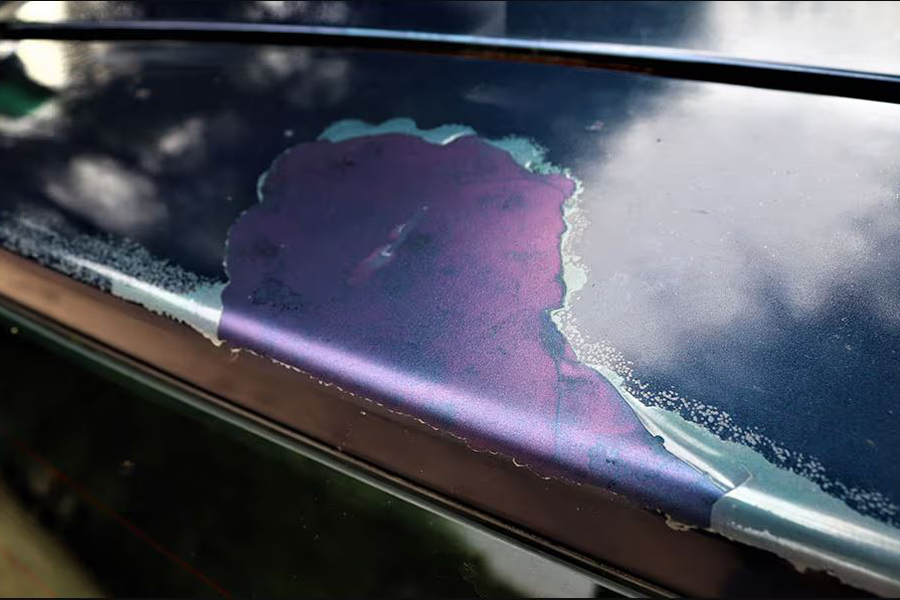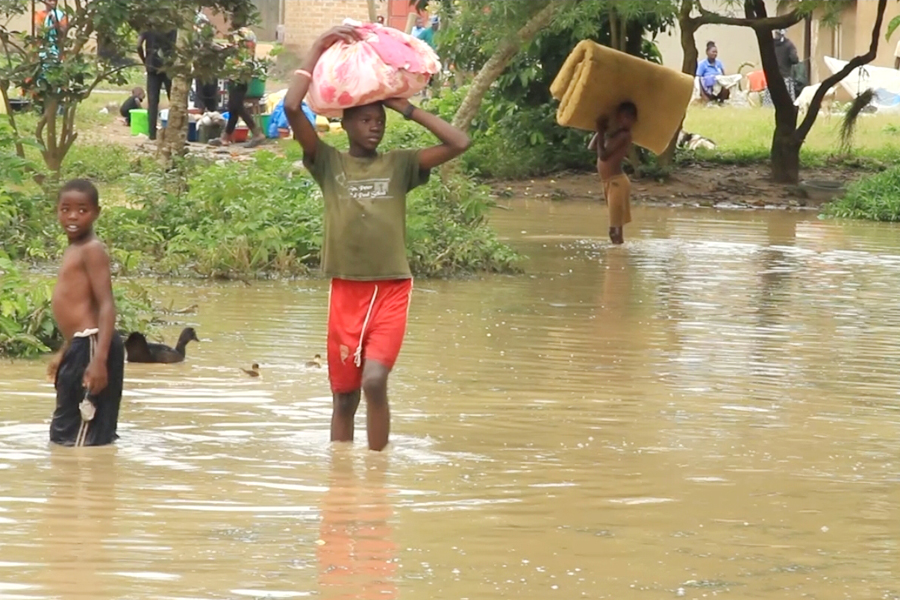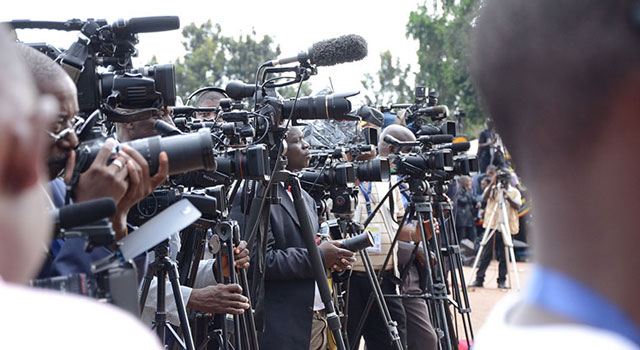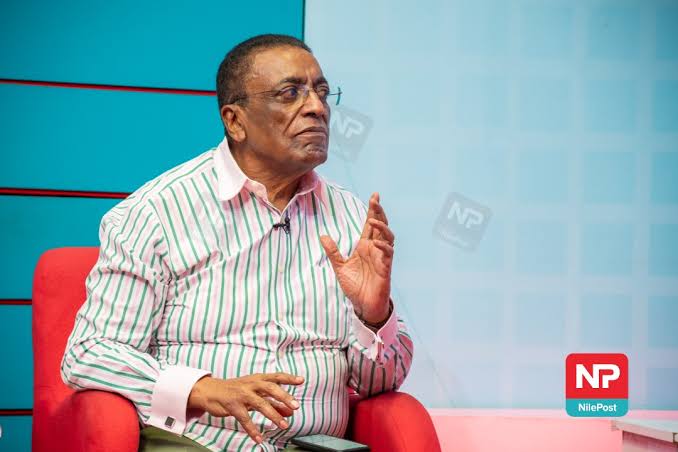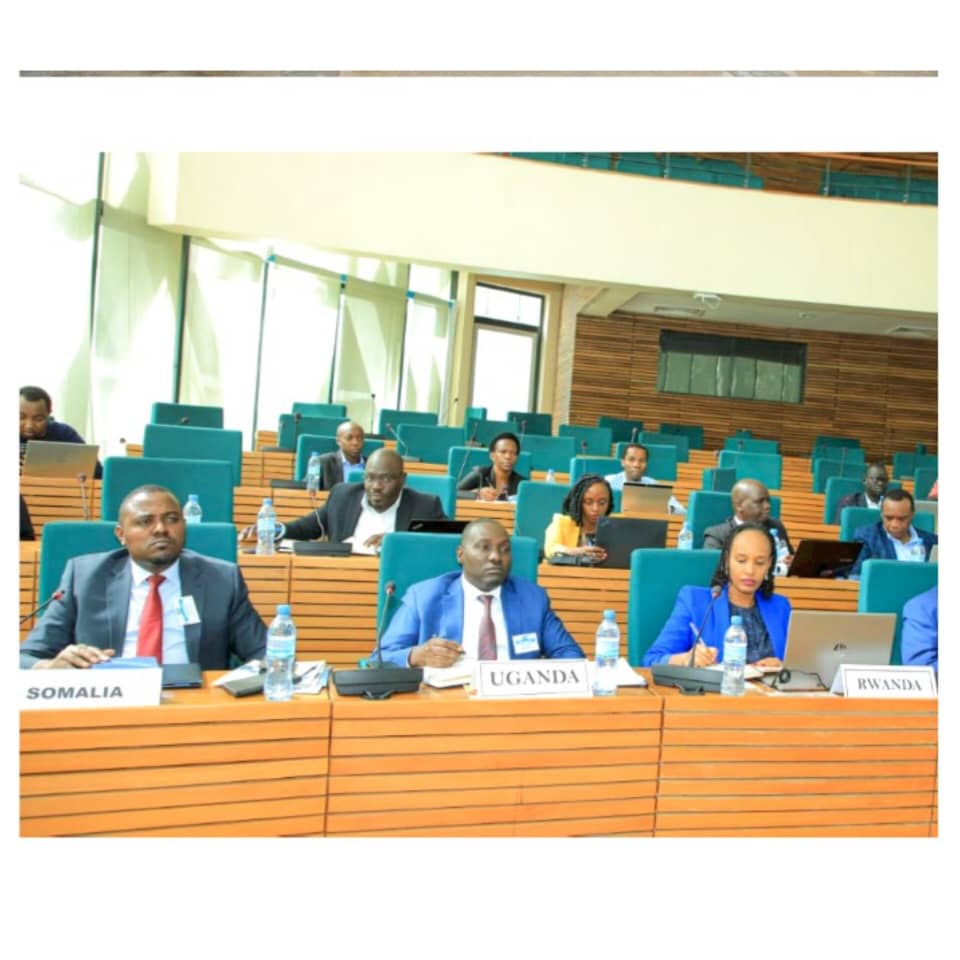Gen Tsadkan Gebretensae: Ethiopia's Tigray rebel mastermind
For the second time in his life, a former army general has found himself at the centre of a rebellion against the Ethiopian government in the mountainous Tigray region, writes analyst Alex de Waal.
The commander of Tigrayan rebel forces, Gen Tsadkan Gebretensae, is regarded by international security analysts as one of the finest military strategists of his generation in Africa.
The 68-year-old abandoned his biology degree at Addis Ababa University in 1976 to join the Tigray People's Liberation Front (TPLF). At the time it was a band of a few hundred guerrillas in remote mountains fighting the-then Marxist regime of Mengistu Haile Mariam.
His analysis, organisational skills and ability to win the trust of the fighters meant that by the late 1980s, he was one of its most respected operational commanders.
By 1991, the TPLF was a formidable army of more than 100,000 and included mechanised divisions.
In May that year, Gen Tsadkan - along with Eritrean forces then allied with the TPLF - led the attack that ended with the capture of the Ethiopian capital, Addis Ababa, and the overthrow of the Mengistu regime.
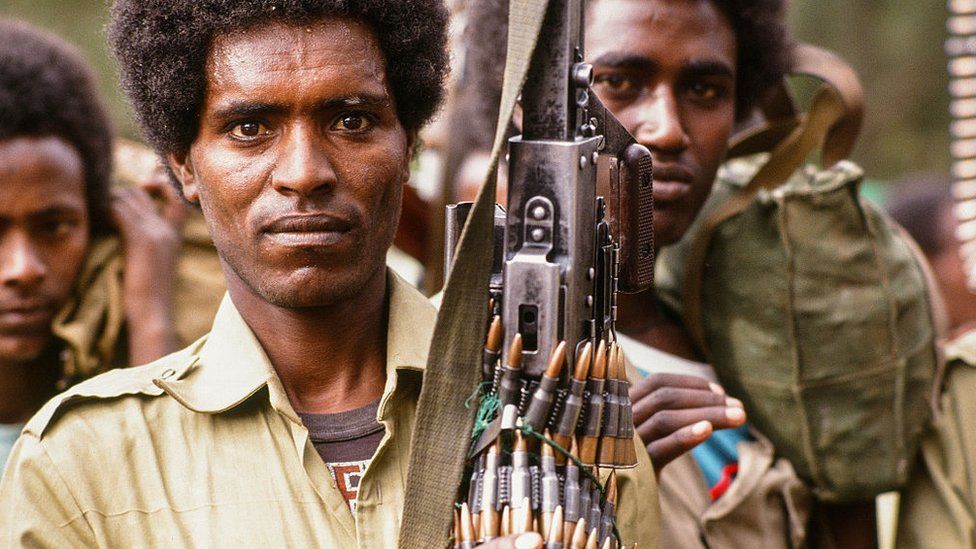
As the TPLF fighters moved in, they secured a temporary headquarters for him, at a guesthouse near the Hilton Hotel.
There Gen Tsadkan slept in a bed with sheets for the first time for 15 years. Under his command, the guerrillas rapidly restored order to the capital - they entered the city on 28 May, and pensions and civil servants' salaries were paid three days later.
Raid on al-Qaeda base
For the next seven years, Gen Tsadkan led the reconstruction of the Ethiopian army. He was given the rank of general and the position of chief of staff.
During Gen Tsadkan's 10 years as head of the Ethiopian National Defence Force, former TPLF commanders made up the core of the military, leading to criticism that the army was not ethnically balanced, as Tigrayans make up about 6% of the population.
Gen Tsadkan also returned to college, studying for an MBA by correspondence at the UK's Open University.
Prof Graeme Salaman remembers his former student: "He is about as far from the stereotypical army officer as you could get - quiet, reflective, a listener, almost shy, open-minded - but of course there is steel inside."
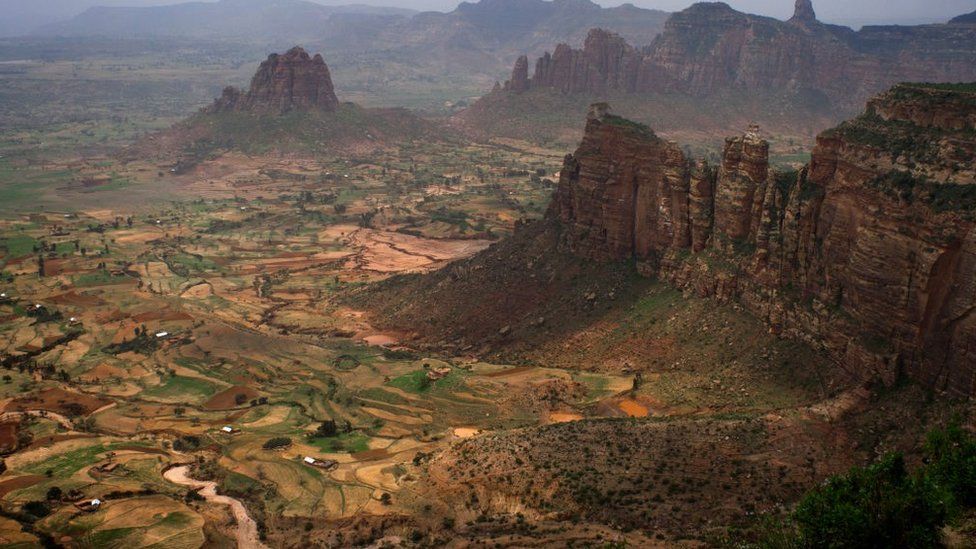
The civil war may have been over but the Horn of Africa was in tumult.
He dispatched troops to raid an al-Qaeda base in Somalia in 1996 and also sent forces clandestinely across the border into Sudan to support the opposition to President Omar al-Bashir.
Fired from the military
Gen Tsadkan's warnings that the Eritrean leader Isaias Afewerki was a threat to Ethiopia went unheeded by his TPLF colleague, then Prime Minister Meles Zenawi.
But during the war with Eritrea which broke out in 1998, Gen Tsadkan was Ethiopia's military planner.
It was an extremely bloody conventional conflict that cost some 80,000 lives on both sides. In June 2000, an Ethiopian offensive broke the Eritrean defences and troops poured over the border.
Gen Tsadkan was intent on advancing towards the Eritrean capital Asmara, but Prime Minister Meles called a halt, saying that Ethiopia's war aims had been achieved and Eritrea was now humbled.


After the war, the TPLF split rancorously over both the war aims and the party's political direction. Mr Meles fired Gen Tsadkan as chief of staff.
Suddenly stripped of the career that had defined him, ostracised by the TPLF leaders, and watched closely by its security agents, Gen Tsadkan struggled to adapt as a private citizen.
He wrote a report on how armies could control HIV. He was hired by the UK Department for International Development to advise the new government of South Sudan on security sector reform - a project that failed to professionalise that country's army.
Gen Tsadkan started a brewery in his home district of Raya, in southern Tigray, and began a horticultural business.
Anti-Tigrayan sentiment
He drew criticism from his former TPLF colleagues when he welcomed the appointment of Abiy Ahmed as Ethiopia's prime minister in 2018 and said he was ready to work with him.
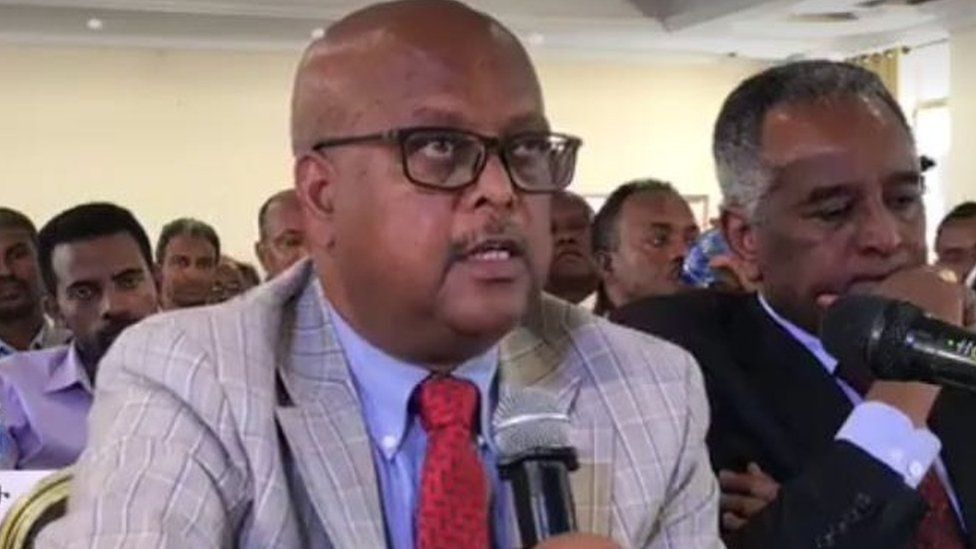
During 2019 he joined an informal group trying to mediate between Mr Abiy and TPLF leaders but quit a year ago, saying that Mr Abiy was not serious.
As anti-Tigrayan sentiment in the capital Addis Ababa mounted, he moved back to Tigray's capital, Mekelle.
When war broke out in Tigray in November last year, he joined the armed resistance, putting aside his differences with other Tigrayan leaders.
Young people flocked to join, horrified at the atrocities committed against their people. Other veterans also signed up, including many who had split from the TPLF years ago.
For its part, the Ethiopian government issued an arrest warrant for Gen Tsdakan and other Tigrayan leaders. It accused them of treason, saying they had started the war by organising an attack on federal military bases in Tigray.
Astounding military achievement
The resistance was organised under the banner of the Tigray Defence Forces (TDF), incorporating both TPLF and non-TPLF members.
Gen Tsadkan was elevated to its central command and assumed joint responsibility for military affairs.
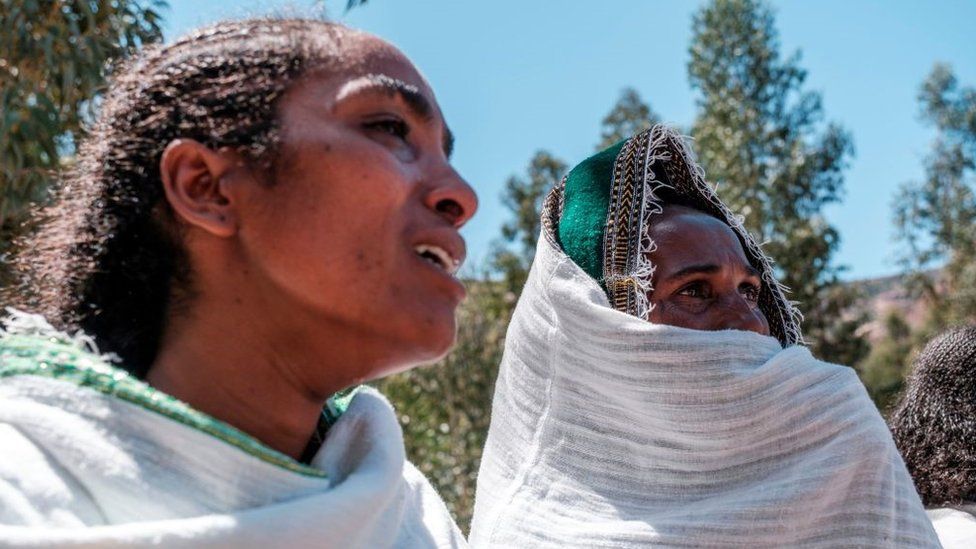
In January, he said: "We were biting the dust." They were on the run, hemmed into mountainous terrain in southern Tigray, many of their young fighters barefoot, armed only with weapons they could carry by hand.
But they managed to break out of the encirclement, surprising the Ethiopian and Eritrean forces with the ferocity of the counter-attack. Gen Tsadkan will not say how many TDF fighters were killed or injured.
For four months they were training, organising and fighting at the same time until, by May, Gen Tsadkan and the other commanders estimated that they had achieved parity with their adversaries.
Three weeks ago, the G7 called for a humanitarian ceasefire in Tigray. The TPLF put out a statement, saying it was ready to distribute relief - and made no mention of a truce.
Then on 17 June the TDF took the initiative. It says that in a series of battles it recaptured territory and routed eight divisions of the Ethiopian army - half its combat strength. The Ethiopian army dismissed its claims as "fake news".
Journalists have yet to visit the battlefields or interview the prisoners of war to confirm these claims. But it appears to be an astounding military achievement by the TDF that few had expected and the Ethiopian military has suffered a heavy setback.
Fears of conflict with Eritrea
TDF forces have entered Mekelle, and the Ethiopian government and army have fled - declaring a ceasefire.
Equipped with a huge arsenal of captured equipment, the TDF is now facing the Eritrean army, which joined the war in November on the side of the Ethiopian military.
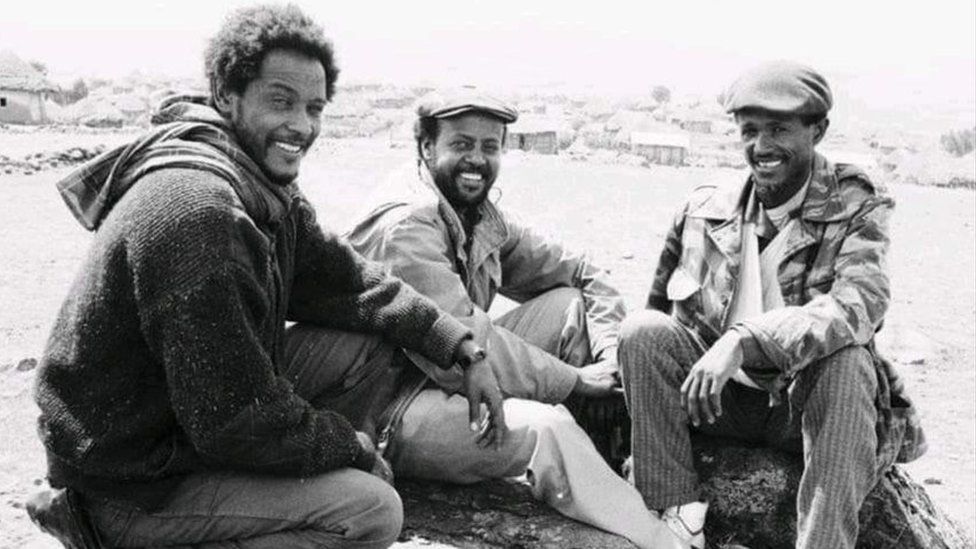 Gen Tsadkan (C) first fought the Ethiopian government from 1976 to 1991
Gen Tsadkan (C) first fought the Ethiopian government from 1976 to 1991
It is a more formidable foe and its army is still intact. Reports indicate that it has abandoned the cities it occupied in northern Tigray and has prepared defensive lines close to the border.
Eritrea's President Isaias is faced with the decision of whether to withdraw north of the border or fight, but the TDF could also force his hand as its view is that it cannot be secure while he remains in power.
Another major battle may, therefore, be looming.

Alex de Waal is the executive director of the World Peace Foundation at the Fletcher School of Law and Diplomacy at Tufts University in the US.
Source: BBC


